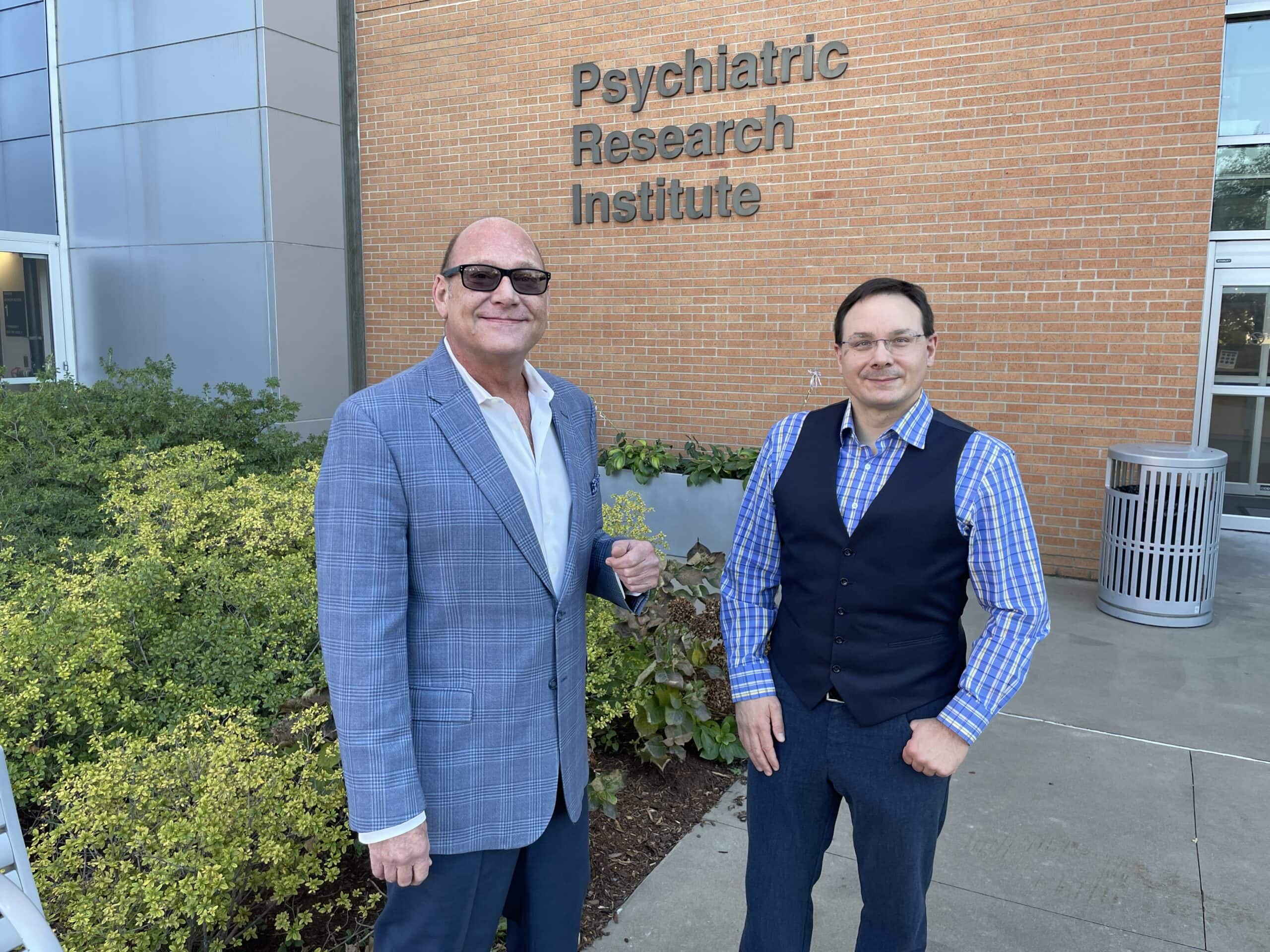UAMS Researchers Design App to Prevent Opioid Use Disorder Relapse
| LITTLE ROCK — A trio of researchers at the University of Arkansas for Medical Sciences (UAMS) have designed a smart phone application to decrease opioid cravings and optimize medication-assisted treatment among individuals with opioid use disorder.
A prototype of the app, known as OptiMAT (Optimizing Medication Assisted Treatment), was one of five winning entries in the 2022 National Institute on Drug Abuse (NIDA) “Product Prototypes to Combat Drug Craving” Challenge, a national contest of product prototypes designed to reduce drug cravings and prevent drug misuse, earning Andrew James, Ph.D., Ronald G. Thompson, Ph.D., and Mary Bollinger, Ph.D., an honorable mention and a $5,000 cash prize.
“An estimated 40% of people with opioid use disorder return to opioid use within one year of initiating outpatient medication-assisted treatment. OptiMAT was created to help people manage their opioid cravings and, hopefully, prevent relapse,” said James, an associate professor in the Department of Psychiatry and a neuroimaging scientist in the UAMS Helen L. Porter and James T. Dyke Brain Imaging Research Center.
Opioids accounted for 68,630 overdose deaths in 2020, according to the Centers for Disease Control and Prevention. Rural states like Arkansas are the hardest hit by opioid overdose because of higher opioid prescription rates and a lack of health care resources, resulting in an opioid-related mortality rate four times that of urban areas. Arkansas has the second highest opioid prescription rate in the country, with 75.8 prescriptions per 100 residents, compared to the national average of 43.3 in 2020.
OptiMAT’s features include self-monitoring of daily opioid use, opioid craving and mood; personalized feedback on goal attainment; charts generated to depict self-assessments over time; health information and abstinence-supporting resources; tips to manage craving and avoid opioid misuse; and a GPS-driven “just-in-time” intervention when entering predesignated geographical areas known to increase risk for opioid use.
“Tracking daily medication use, mood, cravings and withdrawal keeps people aware of and accountable for their behaviors and the personalized feedback on goal attainment reinforces sobriety and promotes engagement in medication-assisted treatment for opioid use disorder,” said Thompson, an assistant professor in the Department of Psychiatry.
“The just-in-time intervention reminds the participant of their sobriety goals and encourages them to call a friend, family member or emergency contact and leave the area before they lapse back to opioid use,” said Bollinger, an assistant professor in the Department of Psychiatry.
Funded by a $2.8 million grant from the National Institute on Drug Abuse, the research team is currently conducting a controlled trial to test the effectiveness of OptiMAT among individuals receiving medication-assisted treatment for opioid use disorder at the UAMS Center for Addiction Services and Treatment (CAST).
UAMS is the state’s only health sciences university, with colleges of Medicine, Nursing, Pharmacy, Health Professions and Public Health; a graduate school; a hospital; a main campus in Little Rock; a Northwest Arkansas regional campus in Fayetteville; a statewide network of regional campuses; and eight institutes: the Winthrop P. Rockefeller Cancer Institute, Jackson T. Stephens Spine & Neurosciences Institute, Harvey & Bernice Jones Eye Institute, Psychiatric Research Institute, Donald W. Reynolds Institute on Aging, Translational Research Institute, Institute for Digital Health & Innovation and the Institute for Community Health Innovation. UAMS includes UAMS Health, a statewide health system that encompasses all of UAMS’ clinical enterprise. UAMS is the only adult Level 1 trauma center in the state. UAMS has 3,485 students, 915 medical residents and fellows, and seven dental residents. It is the state’s largest public employer with more than 11,000 employees, including 1,200 physicians who provide care to patients at UAMS, its regional campuses, Arkansas Children’s, the VA Medical Center and Baptist Health. Visit www.uams.edu or uamshealth.com. Find us on Facebook, X (formerly Twitter), YouTube or Instagram.
###
